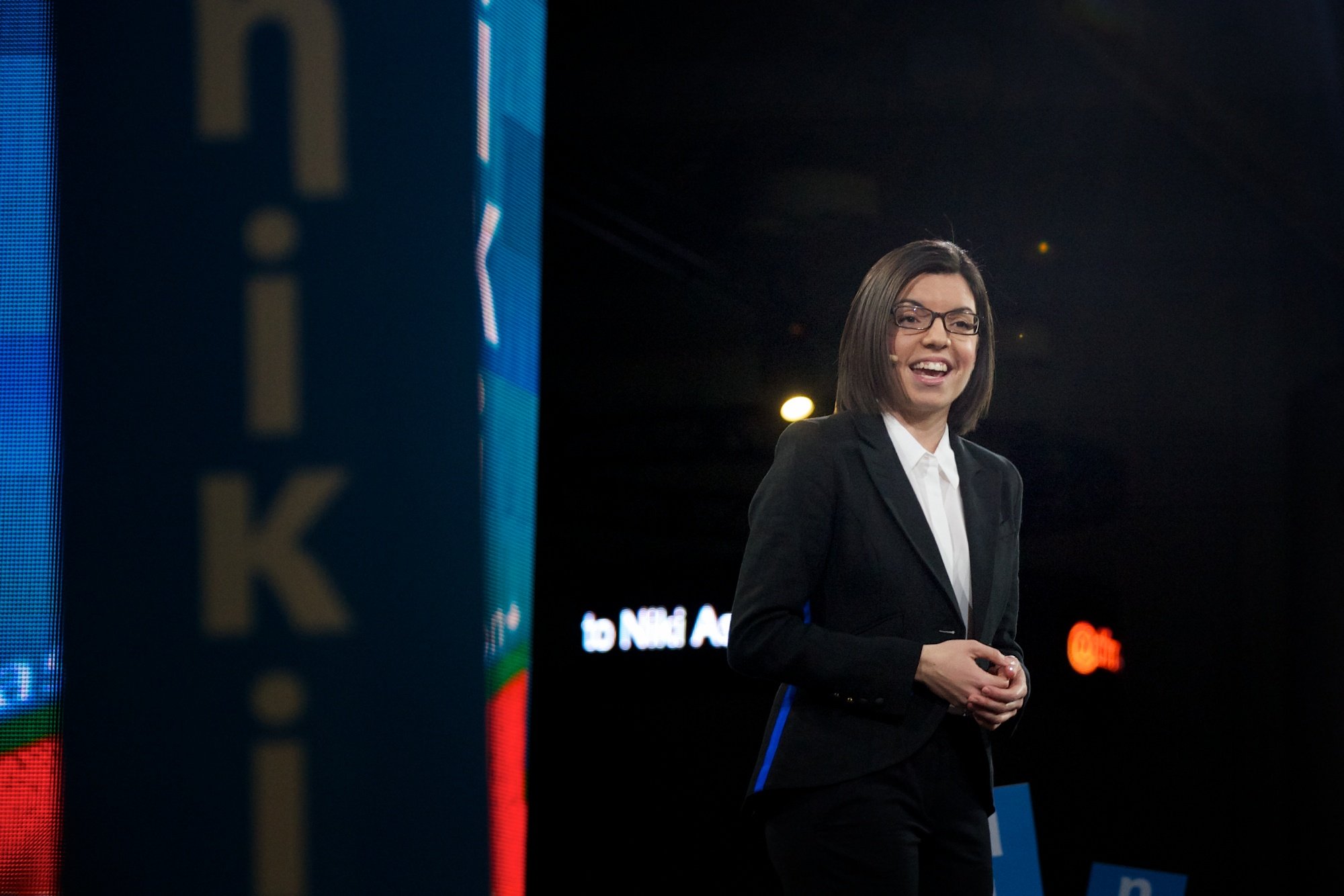When Niki Ashton thinks about Prime Minister Justin Trudeau’s record on LGBT issues, two words come to mind: “window dressing.”
“After the Harper years, people were relieved to see a leader that comes to Pride,” she says. “But we have to go beyond the window dressing and the public relations.”
With the exception of the passage of a federal trans-rights bill, Ashton says that LGBT issues have taken a backseat under the Trudeau government.
As part of her bid for the federal NDP leadership, Ashton has released an LGBT justice platform that she says would help address the structural barriers LGBT Canadians face.
Ashton is so far the only NDP leadership candidate to unveil an LGBT-specific platform plank. She also previously released a gender justice platform that took special aim at tackling transphobia.
Her LGBT justice platform includes a commitment to trans health care, a promise to introduce non-binary options on federal ID, and a promise to end the ban on gay and bisexual men donating blood.
During the last federal election, Trudeau promised to end the blood ban, which he called “discriminatory.” But as prime minister, the blood ban has remained, albeit with a shorter deferral period.
Ashton is also pledging to work with the provinces to provide more support for LGBT youth in schools, including by introducing a federal advocate for LGBT youth.
“We know that queer youth, trans youth are much more prone to struggling with mental illness, even suicide,” she says. “And this isn’t just in one part of the country, this is a national issue, an issue of urgent importance.”
While Ashton says she appreciates the work that Randy Boissonnault, the prime minister’s special advisor on LGBTQ2 issues, has been doing, she says Boissonnault doesn’t have the resources or mandate to get the job done.
“The fact that the special advisor on LGBT issues doesn’t have a budget is troubling,” she says.
Instead, Ashton pledges to introduce a cabinet-level position for LGBT issues.
She also would like to see the federal government apologize and provide compensation to LGBT people who were criminally charged under homophobic laws or were kicked out of the public service or military because of their sexual orientation.
And when it comes to foreign policy, Ashton takes aim at the Saudi arms deal, saying that Canadian commitments on LGBT rights should be reflected in foreign policy, including on foreign aid and refugee policy.
“Despite the rhetoric, it’s clear that this government has not been making a real difference,” she says.

 Why you can trust Xtra
Why you can trust Xtra


